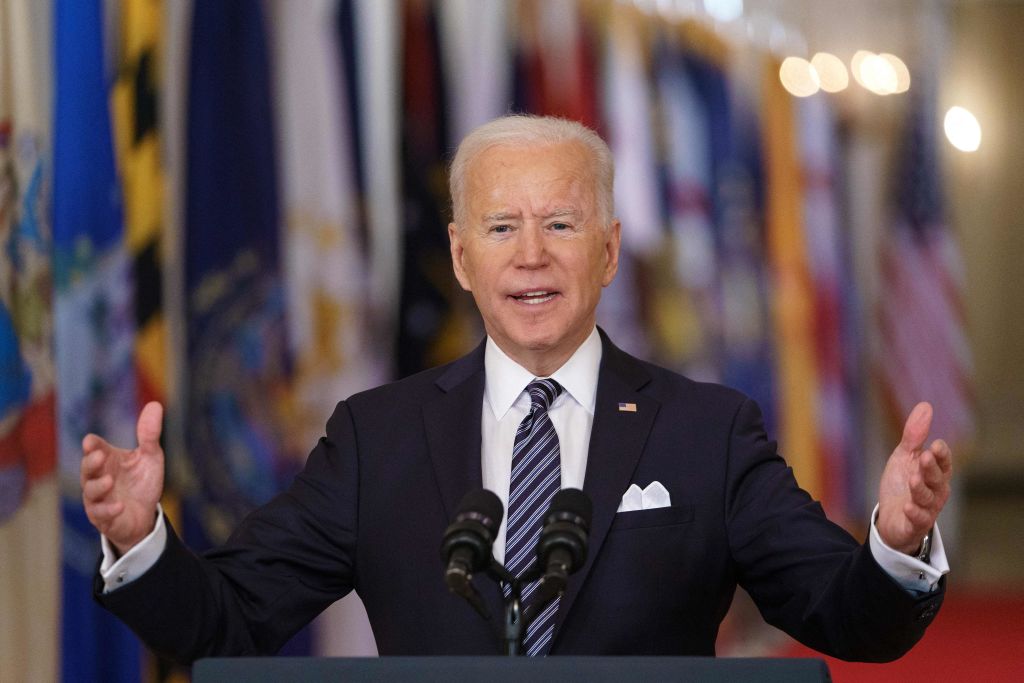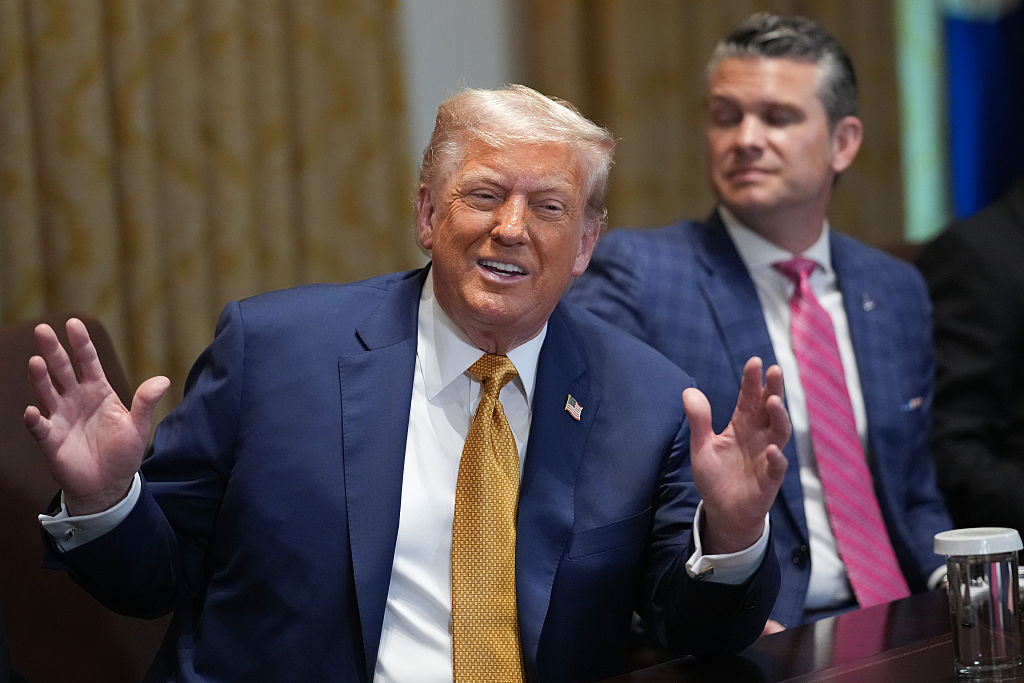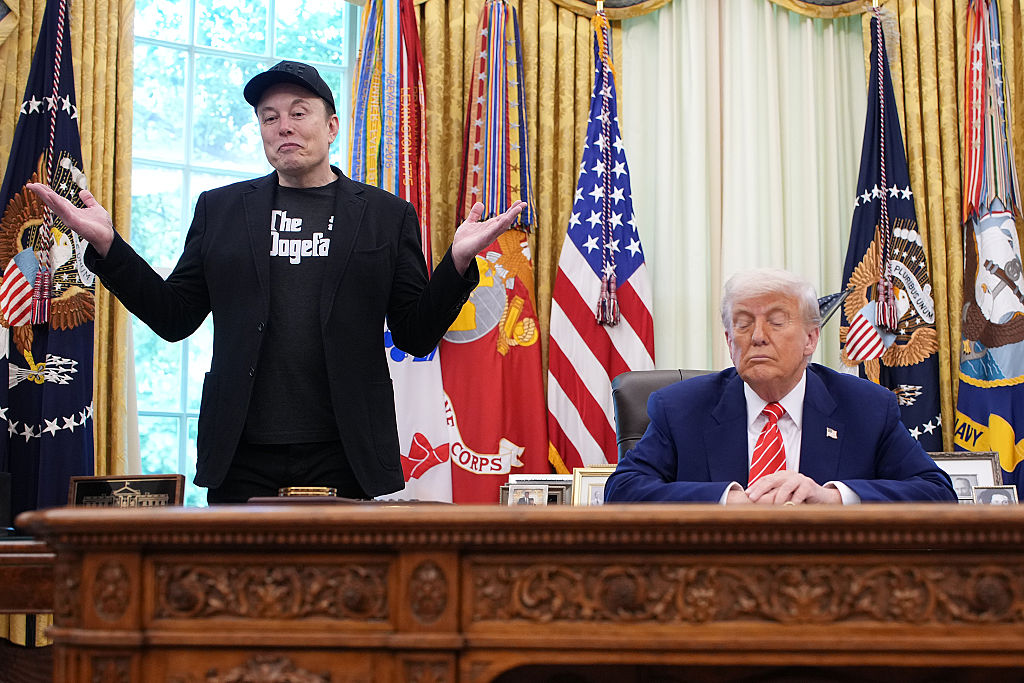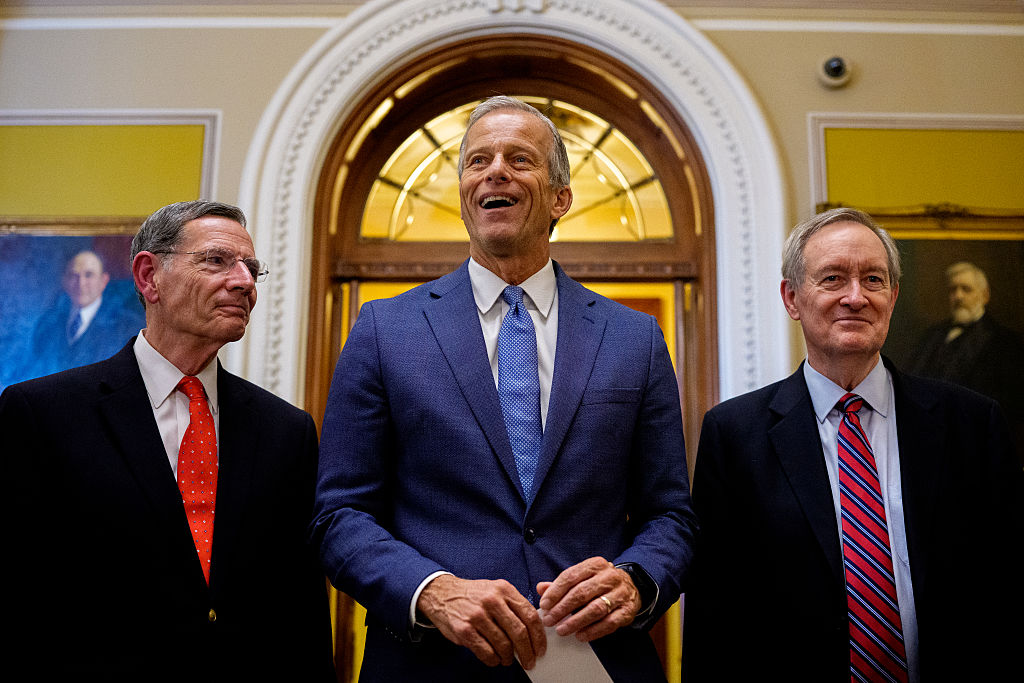President Joe Biden just proposed the largest budget (as a percentage of America’s economy) since the country was fighting Nazi Germany, Imperial Japan and Fascist Italy. He’s doing it when there is no emergency, only an overweening desire to pass progressive programs quickly, before they lose their legislative majority.
The best historical analogue to his proposed budget increase is Lyndon Johnson’s cradle-to-grave Great Society Program. It has the same flaws. In fact, Biden’s program is best understood as the next step in a long political arc, extending from Franklin Roosevelt to LBJ to Obamacare.
All of them proposed centralized government solutions to almost every social problem, particularly endemic problems among the poor.
Today, those problems are caused mainly by the breakdown of family structures, high rates of urban violence and public schooling that doesn’t prepare graduates for jobs that require higher and higher levels of education. LBJ’s programs were designed to solve some of those problems, particularly poverty and social breakdown. The direct transfer programs certainly increased recipients’ income, but the big planning schemes only made problems worse. Biden’s programs are likely to do the same.
Roosevelt and Johnson permanently changed Washington’s role in American life to achieve their goals. Again, Biden proposes to extend the core Democratic objective. By vastly increasing the government’s share of the economy, along with ever-increasing bureaucratic regulations, his programs will make America’s government and economy much more like Europe’s social democracy. That means a larger social safety net, higher taxes, and slower growth. It means less control by state and local government, and less autonomy for individuals.
Biden’s budget raises several fundamental questions.
• What are the big-ticket items?
• Why do we need such a huge budget now? Is there some crisis?
• How do Biden and the Democrats propose to pay for it?
• Was Biden elected on this platform? Did he propose this program so his election can be seen as an endorsement? Did he carry a large electoral majority, commensurate with his large goals?
• Does this budget have any chance of passing?
Let’s take the last question first. No. There’s zero chance this back-breaking budget will pass. Polls show that while Americans want to upgrade basic infrastructure, such as roads and bridges, they don’t buy the administration’s word games that pre-school education and elder care count as ‘infrastructure’. President Biden, Speaker Nancy Pelosi, and Senate Majority Leader Chuck Schumer are trying to sell everything but ice cream as infrastructure, but voters aren’t that gullible. If pre-school and elder care are worth passing, then propose and debate them for what they really are. Explain how they will be paid for. Then let Congress vote on them, separate from bills for roads, bridges, and broadband. Don’t put lipstick on this pig and call it Mabelle. How do we know the Biden White House isn’t very optimistic about passing anything like this budget? Because they released on a Friday, just before a long Memorial Day holiday. That’s when you bury news, not trumpet it.
Why did they release such a big budget number? Perhaps it was to signal their progressive allies that Biden supports their priorities. Perhaps it was to lay down an ambitious marker for negotiations with Congress. The idea is that starting negotiations with a high initial offer will ultimately yield a higher number in the final deal. Maybe, but it’s a long-shot.
Studies of business negotiations show that it helps to begin with a number that is slightly high but not crazy. An ambitious-but-realistic opening number can nudge up the final bargain. What doesn’t help is starting with an unrealistic number. It leads the other side to push back harder or walk away entirely. That’s a real problem for Biden’s team. Even with the media on their side, Biden’s team will be on the defense from the start, defending the indefensible.
These big numbers are a solution looking for a crisis to solve. There isn’t one, at least not one addressed in this budget. A year ago, sure, there was a devastating COVID shock. People died. Businesses closed. Millions lost their jobs. Congress responded by passing several huge relief bills, all unfunded. That’s all in the rear-view mirror now.
With the economy surging back, it’s foolhardy to flood a tight job market with vast new government programs and print money to pay for them. Inflation is an obvious risk. It is already ticking up, slightly at the grocery store and a lot more at the gas pump. People under 50 have never seen real inflation before. They don’t remember the Jimmy Carter years. They’re just lucky.
Biden’s team should be wary of any comparisons. For Democrats, inflation is not just an economic risk. It’s a political one since it generates higher interest rates, uncertainty and dislocation. Voters will be even more upset if their nominal wages don’t keep up with rising prices. That would mean a loss of real income, not the rising tide of prosperity and greater income equality Biden promised.
It’s no surprise that voters don’t like the idea of major tax increases, which are needed to pay for all these proposed programs. To convince voters, Biden’s team is telling them that the burden will be borne exclusively by the rich and big corporations. The question is whether voters believe that pitch.Republicans will stress the alternative possibility. They will say that the tax increases don’t cover the massive budget gap, that the only way to pay for these programs is to raise taxes much higher and extend them to the middle-class families (if not now, then soon). Of course, Republicans will oppose those tax hikes and blame everything on the Democrats. Republicans will add that higher corporate taxes don’t come free, either. They will slow growth, just as Trump’s tax cuts fostered it.
This debate over taxes and growth will be central to the fate of Biden budget and to the electoral prospects of Democrats in 2022. So will the debate over whether America needs a larger, more centralized government to solve the country’s challenges.
Biden will also face criticism that his presidency doesn’t look anything like his campaign. He didn’t promise voters anything like this budget or this progressive agenda. His most compelling message was that he would return the nation to ‘normalcy’, ending Donald Trump’s angry outbursts. Biden won a narrow victory amid the pandemic shutdown, not least because people like Joe personally. They still do. It’s his biggest political asset.
But Biden never asked voters for a mandate to implement these massive programs. And they didn’t give him one. They didn’t give him large majorities in Congress, either, like those backing Franklin Roosevelt and Lyndon Johnson when they passed their agendas.
Joe Biden never mentioned that he intended to spend another $1.8 trillion on safety net programs, or that he would spend it after the economy was coming back strong. He never mentioned adding another $1.5 trillion in additional discretionary spending. He never said he intended to make some of the biggest proposals ‘entitlements’, which are almost impossible to repeal. It was all bait-and-switch. The question now is whether the fish are still biting.

























